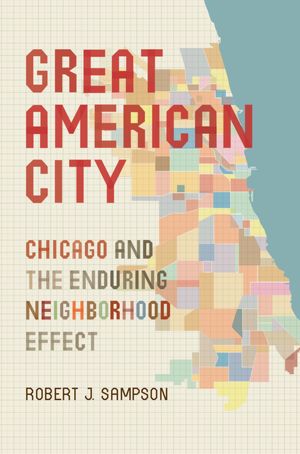Douglas S. Massey has a very useful review in Science magazine of Great American City Chicago and the Enduring Neighborhood Effect by Robert J. Sampson. He writes:
Cognitive science reveals that human rationality is not simply constrained by information and resources; it is not even rational in the deductive sense. Instead, it is structured by characteristic shortcuts known as heuristics that lead us to think in categorical rather than Boolean terms.
At the same time, neuroscience indicates that our highly imperfect “rationality” is itself strongly conditioned by powerful emotions emanating from a parallel and interconnected but substantially independent processing system rooted in the mammalian brain. As a result, our “reasoned” actions often serve emotionally grounded motivations of which we are only dimly aware. They are often prejudiced rather than rational.
Lastly, sociological studies have demonstrated that the social contexts in which people make decisions are not unstructured but segmented in complex ways at a variety of organizational levels. The resulting social structures are connected to one another in ways that tend to reproduce and reinforce the status quo over time and strongly shape individual choices and outcomes.Apparently Sampson's book extends this understanding showing that geographic location is one of the factors that structures social interactions and thus decision making.
In the same issue of Science Stephen M. Fiore reviews Reinventing Discovery The New Era of Networked Science by Michael Nielsen.
In the book's first half, “Amplifying Collective Intelligence,” Nielsen describes the benefits to cognition that can emerge from collaboration and through the use of technological scaffolds......
Nielsen opens the book's second half, “Networked Science,” with the case for a more concerted effort to develop a “scientific information commons,” making data freely available and easily accessible.It kind of makes you wonder if we are going to see a quantum leap in technologically augmented social networking for assessment, analysis and decision making. And wouldn't it be nice if we take advantage of the opportunity and do it well, since surely here as everywhere, there is a "dark side to the force."


No comments:
Post a Comment